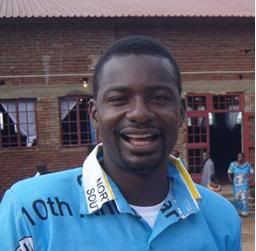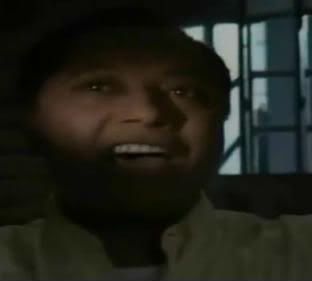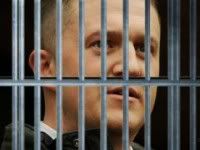Wednesday, 28 March 2012
Monday, 26 March 2012
The future of Cambridgeshire's addictions services
Cambridge and Peterborough NHS Foundation Trust (CPFT) doesn’t have its troubles to seek. Not long ago the mental health trust it was criticised by the Care Quality Commission for failings regarding in-patient care, but later passed by the same body.
Now CQC’s successor, Monitor, has hit CPFT with a much more damaging indictment: "lack of strong leadership at board level".
This will be especially morale-draining for workers in the addictions service which, according to Cambridgeshire’s Drug and Alcohol Action Team, changes providers on 1 April. The service is currently run by Addaction until 31 March. And betting people in Cambridge say the tender will return to the NHS – specifically CPFT.
Before Addaction won against what had been seen as a strong NHS tender towards the end of the last decade, staff who had decided to jump bore disturbing tales of senior managers holding barely-veiled threats concerning pensions over workers’ heads should another body win the tender. Morale, driven round people’s ankles by multiplying cover-ups and management layers, went through the floor, until the threats were exposed as toothless.
(On cover-ups, I wonder if it’s coincidental that the Trust was initially passed by the CQC, fronted by Cynthia Bower, who not only looked away from the massacre at Stafford Hospital while head of its strategic health trust, but was probably chosen to head the CQC when selective vision was a positive quality in NHS aristocracy.)
If the CPFT does take over the running of Cambridgeshire’s addiction services from May 1, CPFT’s Board of Directors will have to exercise real control over sector managers to prevent a relapse into oligarchy. If it can do that, people on the ground will be able to exercise the vocation of helping people with broken lives – and those around them – find healing without another millstone round their necks.
Now CQC’s successor, Monitor, has hit CPFT with a much more damaging indictment: "lack of strong leadership at board level".
This will be especially morale-draining for workers in the addictions service which, according to Cambridgeshire’s Drug and Alcohol Action Team, changes providers on 1 April. The service is currently run by Addaction until 31 March. And betting people in Cambridge say the tender will return to the NHS – specifically CPFT.
Before Addaction won against what had been seen as a strong NHS tender towards the end of the last decade, staff who had decided to jump bore disturbing tales of senior managers holding barely-veiled threats concerning pensions over workers’ heads should another body win the tender. Morale, driven round people’s ankles by multiplying cover-ups and management layers, went through the floor, until the threats were exposed as toothless.
(On cover-ups, I wonder if it’s coincidental that the Trust was initially passed by the CQC, fronted by Cynthia Bower, who not only looked away from the massacre at Stafford Hospital while head of its strategic health trust, but was probably chosen to head the CQC when selective vision was a positive quality in NHS aristocracy.)
If the CPFT does take over the running of Cambridgeshire’s addiction services from May 1, CPFT’s Board of Directors will have to exercise real control over sector managers to prevent a relapse into oligarchy. If it can do that, people on the ground will be able to exercise the vocation of helping people with broken lives – and those around them – find healing without another millstone round their necks.
Joe Daniels
300 words
Saturday, 24 March 2012
The Voice versus Britain's Got Talent
The first disbled pop-star I saw on the BBC was Robert Wyatt, performing I’m Believer on Top of the Pops in 1974. Wyatt had been paralysed from the waist down following a party thrown by June Campbell Cramer (Lady June) the year before. The producer hadn’t wanted Wyatt to appear in his wheelchair because it wasn’t “rock and roll” enough, but Wyatt won the day.
Things have changed, and now the BBC dictates what is and isn’t appropriate for us, its funders, to see, hear and learn.
Which is why I’d had high hopes for The Voice, a new talent show where the four judges – Tom Jones, Jessie J, will.i.am and Danny O’ Donoghue – cannot see the source of the voice they before they decide whether to take them on for further training.
While this much was true, it soon became obvious that the contestants had already been through a pre-show selection process that the viewing public, ie licence-payers funding the show, were not invited to witness, much less comment on or participate in.
One good thing was that the ageist, sexist BBC hierarchy would see Tom Jones as merely the token older person and Jessie J as merely the token woman. But these two ended up with three artistes each, jointly leading the pack.
But where were the very British eccentrics that make talent shows in this country such fun? Acts of the sort that you can see every week on Britain’s Got Talent, the ITV behemoth that competes with The Voice for the same slot? The public-school, high-culture BBC decision-makers decided that they are not suitable for us to see.
 Meanwhile, on BGT, blue-collar Brits (and Europeans) entertained us, finishing with operatic teens Jonathan and Charlotte who blew the opposition away. I know what I’ll be watching in coming weeks.
Meanwhile, on BGT, blue-collar Brits (and Europeans) entertained us, finishing with operatic teens Jonathan and Charlotte who blew the opposition away. I know what I’ll be watching in coming weeks.
Things have changed, and now the BBC dictates what is and isn’t appropriate for us, its funders, to see, hear and learn.
Which is why I’d had high hopes for The Voice, a new talent show where the four judges – Tom Jones, Jessie J, will.i.am and Danny O’ Donoghue – cannot see the source of the voice they before they decide whether to take them on for further training.
While this much was true, it soon became obvious that the contestants had already been through a pre-show selection process that the viewing public, ie licence-payers funding the show, were not invited to witness, much less comment on or participate in.
One good thing was that the ageist, sexist BBC hierarchy would see Tom Jones as merely the token older person and Jessie J as merely the token woman. But these two ended up with three artistes each, jointly leading the pack.
But where were the very British eccentrics that make talent shows in this country such fun? Acts of the sort that you can see every week on Britain’s Got Talent, the ITV behemoth that competes with The Voice for the same slot? The public-school, high-culture BBC decision-makers decided that they are not suitable for us to see.
 Meanwhile, on BGT, blue-collar Brits (and Europeans) entertained us, finishing with operatic teens Jonathan and Charlotte who blew the opposition away. I know what I’ll be watching in coming weeks.
Meanwhile, on BGT, blue-collar Brits (and Europeans) entertained us, finishing with operatic teens Jonathan and Charlotte who blew the opposition away. I know what I’ll be watching in coming weeks.Tony Urquhart
300 words
Friday, 23 March 2012
Reverse Missionaries: a cure for Sport Relief?

Last night as an alternative to the Sport Relief leviathan BBC screened Reverse Missionaries. In this episode, Pastor John Chilimtsidya travelled from Blantyre in Malawi to Blantyre in Scotland, whence David Livingstone sailed 150 years ago to Africa.
What intrigued me was that in Malawi's Blantyre Pastor Chilimtsidya had built his congregation up from 25 to over 800. Here, in one of Africa’s poorest countries, we saw no images of dying children, desperate adults or starving cattle.
Then Sports Relief came back on. After a comedy quiz show we were transported to a Ugandan hospital full of children dying from preventable diseases as their mothers looked on, joined by popsters JLS.
Why these two very different faces of Africa? It could be, to borrow Stephen Fry's summary of the US, that it’s so large and diverse that the opposite of anything you can say about it is also true.
But also, Chilimsidya pulled his community up by its own bootstraps, according to Livingstone’s principle of working within the local culture. A thriving community led by a handsome, intelligent and charismatic preacher isn’t going to attract much charity. But grinding poverty, dying children and weeping pop-stars will. And maybe that’s part of the problem: it’s in the nature of charitable funds to be dispersed laterally, whether into training and administration budgets or just corruption. Images of suffering children and histrionic celebs might bring in the charitable - and somewhat culturally imperialistic - pound, but charity all too often disempowers those it affects to help and, what is worse, lines the pockets of their oppressors.
In the end, Africa will never stand up and shine through exploitative charity telethons but through communities empowered by motivators like John Chilimsidya.
Gerry Dorrian
300 words
Click to go to the Reverse Missionaries website
Monday, 19 March 2012
Panorama: Britain's Crimes of Violence
 The latest harrowing offering from Panorama on BBC1, Britain’s Crimes of Honour, traces the root cause of horrendous attacks and even 10-12 murders per year to forced marriage.
The latest harrowing offering from Panorama on BBC1, Britain’s Crimes of Honour, traces the root cause of horrendous attacks and even 10-12 murders per year to forced marriage. The BBC was brave to screen this documentary, given its past paralysis at the thought of offending Muslims, the chief offenders in the UK – see, for instance, its refusal to countenance binning a Koran on Room 101.
 What was concerning was the Corporation’s continuing insistence on confounding Muslims with Asians: we were continually bombarded with references like "south Asian men" and "a mixed white and Asian community". "Asian" is no more a synonym for "Muslim" than "white" is for "British". The "Asian born here" who killed Laura Wilson (left) for dishonouring his family (ie being his girlfriend) may well be British: Blair and Brown nationalised Islamist bigotry like never before.
What was concerning was the Corporation’s continuing insistence on confounding Muslims with Asians: we were continually bombarded with references like "south Asian men" and "a mixed white and Asian community". "Asian" is no more a synonym for "Muslim" than "white" is for "British". The "Asian born here" who killed Laura Wilson (left) for dishonouring his family (ie being his girlfriend) may well be British: Blair and Brown nationalised Islamist bigotry like never before. Unfortunately, like Adil Ray’s documentary about Pakistani men grooming young girls, at key points in the documentary there were subtle suggestions that the problem was in fact Sikh.
A poster behind a telephone counsellor who dealt with girls who were forced to marry, or thought they were at risk of this, was a poster saying "Forced marriage is abuse not cultural". This is the basic error underlying the approach to HBV. As the British Freedom Party says, "it’s about culture, not colour. If the culture is abusive, abuses like forced marriage and HBV will continue while that culture is tolerated in our midst.
I would suggest that if we can make Britain a safe space for the survivors of HBV to reimagine Islam, they will gestate a cultural/religious phenomenon that cleaves to Western civilisation easily, unlike the beard-and-burqa imperialism presently hegemonic. But for this to happen we need to return to Mrs Thatcher’s mantra that "a crime is a crime is a crime": ethnicity, like ignorance, is no excuse.
Gerry Dorrian
300 words
Click to go to 300 words: The first British honour killing? I don't think so
Sunday, 18 March 2012
protest songs: Something Inside So Strong
[Video at bottom of post]
 Labbi Siffre wrote Something Inside So Strong about apartheid. It remains a powerful testament to the power both of ordinary people straining to free themselves from the shackles of injustice, and of leaders – like Nelson Mandela – who come to represent this struggle through their own experiences of oppression.
Labbi Siffre wrote Something Inside So Strong about apartheid. It remains a powerful testament to the power both of ordinary people straining to free themselves from the shackles of injustice, and of leaders – like Nelson Mandela – who come to represent this struggle through their own experiences of oppression.
Historian Eric Hogsbawm defines apartheid as a system that ensures that, when people of different ethnicities mix, one has more rights than the rest.
We’ve seen this at work with young girls in the north of England who were groomed for sex by Pakistani men who, until recently, got off scot-free because of an unwillingness to "offend communities". In Blackpool, Charlene Downes' killers recorded admitting cutting up her body; because of "political correctness" the trial was sabotaged, and the abuse of a further 60 girls covered up. This week we’ve heard that Laura Wilson was "Britain’s first white honour killing victim" after confronting two Pakistani ex-boyfriends.
In Great Britain, a system of apartheid denies justice to victims of serious crimes, including rape and murder, if their oppressors belong to a certain ethnicity (regardless of the victims' own ethnicity). But all is not lost: tonight the BBC, of all broadcasters, has made a documentary on honour-based violence.
 It has found its voice through the efforts of civil-rights organisations the English Defence League and Casuals United, who oppose oppression without fear or favour. EDL leader Tommy Robinson (right) has suffered greatly for his unpaid role and will, I think, be viewed as a Nelson Mandela-like figure by future generations. Just as Mandela eschewed violence post-release, so Robinson insists that EDL demonstrations are peaceful, and berates those who would turn to violence before all avenues of peaceful protest have been exhausted.
It has found its voice through the efforts of civil-rights organisations the English Defence League and Casuals United, who oppose oppression without fear or favour. EDL leader Tommy Robinson (right) has suffered greatly for his unpaid role and will, I think, be viewed as a Nelson Mandela-like figure by future generations. Just as Mandela eschewed violence post-release, so Robinson insists that EDL demonstrations are peaceful, and berates those who would turn to violence before all avenues of peaceful protest have been exhausted.
For all these reasons, I recommend Something Inside So Strong to everybody who resists beard-and-burqa oppression as a protest song.
 Labbi Siffre wrote Something Inside So Strong about apartheid. It remains a powerful testament to the power both of ordinary people straining to free themselves from the shackles of injustice, and of leaders – like Nelson Mandela – who come to represent this struggle through their own experiences of oppression.
Labbi Siffre wrote Something Inside So Strong about apartheid. It remains a powerful testament to the power both of ordinary people straining to free themselves from the shackles of injustice, and of leaders – like Nelson Mandela – who come to represent this struggle through their own experiences of oppression. Historian Eric Hogsbawm defines apartheid as a system that ensures that, when people of different ethnicities mix, one has more rights than the rest.
We’ve seen this at work with young girls in the north of England who were groomed for sex by Pakistani men who, until recently, got off scot-free because of an unwillingness to "offend communities". In Blackpool, Charlene Downes' killers recorded admitting cutting up her body; because of "political correctness" the trial was sabotaged, and the abuse of a further 60 girls covered up. This week we’ve heard that Laura Wilson was "Britain’s first white honour killing victim" after confronting two Pakistani ex-boyfriends.
In Great Britain, a system of apartheid denies justice to victims of serious crimes, including rape and murder, if their oppressors belong to a certain ethnicity (regardless of the victims' own ethnicity). But all is not lost: tonight the BBC, of all broadcasters, has made a documentary on honour-based violence.
 It has found its voice through the efforts of civil-rights organisations the English Defence League and Casuals United, who oppose oppression without fear or favour. EDL leader Tommy Robinson (right) has suffered greatly for his unpaid role and will, I think, be viewed as a Nelson Mandela-like figure by future generations. Just as Mandela eschewed violence post-release, so Robinson insists that EDL demonstrations are peaceful, and berates those who would turn to violence before all avenues of peaceful protest have been exhausted.
It has found its voice through the efforts of civil-rights organisations the English Defence League and Casuals United, who oppose oppression without fear or favour. EDL leader Tommy Robinson (right) has suffered greatly for his unpaid role and will, I think, be viewed as a Nelson Mandela-like figure by future generations. Just as Mandela eschewed violence post-release, so Robinson insists that EDL demonstrations are peaceful, and berates those who would turn to violence before all avenues of peaceful protest have been exhausted.For all these reasons, I recommend Something Inside So Strong to everybody who resists beard-and-burqa oppression as a protest song.
Gerry Dorrian
300 words
Saturday, 17 March 2012
The first British honour killing victim? I don't think so

The Daily Mail seemed ambivalent about an article that might have graced its first page along with its headline, Is this Britain’s first white honour killing victim? It was on page 37 as part of the Saturday Life supplement; the website link to the article was underneath old news.
I imagine the editors wouldn’t have known what to do with it because "white" seems to be used as a synonym for British. Although by far the majority of people in Great Britain are white British, to use "white" to mean British is as misleading as using "Asian", "south Asian" and "Middle Eastern" for "Muslim": the article uses all three terms in that sense.
Author Jane Corbin informs us at least 10-12 honour-based killings occur per year in Britain. Some of these must be British: the children, for instance, of naturalised immigrants. For the state to stand by as British women and children are denied justice because of their ethnicity is apartheid. Defined by Marxist historian Eric Hogsbawm as a system where, when ethnicities mix, some are granted fewer rights than others, it is a phenomenon the aforementioned white British are also familiar with when sharing facilities and services with beard-and-burqa imperialists.
Surely people, in our supposedly enlightened age, have the right to fall in love with whoever they want to, and to have the parents which accidents of birth place them with? Not when the the Sharia court is an Enlightenment-free zone, where there is "neither control over the appointment of 'judges' nor an independent mechanism for monitoring them".
Two courses of action suggest themselves: first, to work to make Britain a Sharia-free zone. And secondly, to oppose the rehashing of sinister, outmoded views on race that are uncharacteristic for the Daily Mail, and have made a cackhanded mess of a life-and-death issue.
Go to the website for Jane Corbin's Britain's crimes of honour, a Panorama documentary to be broadcast at 8.30pm on Monday 19 January
Click to go to 300 words: Panorama: Britain's Crimes of Honour
Subscribe to:
Posts (Atom)